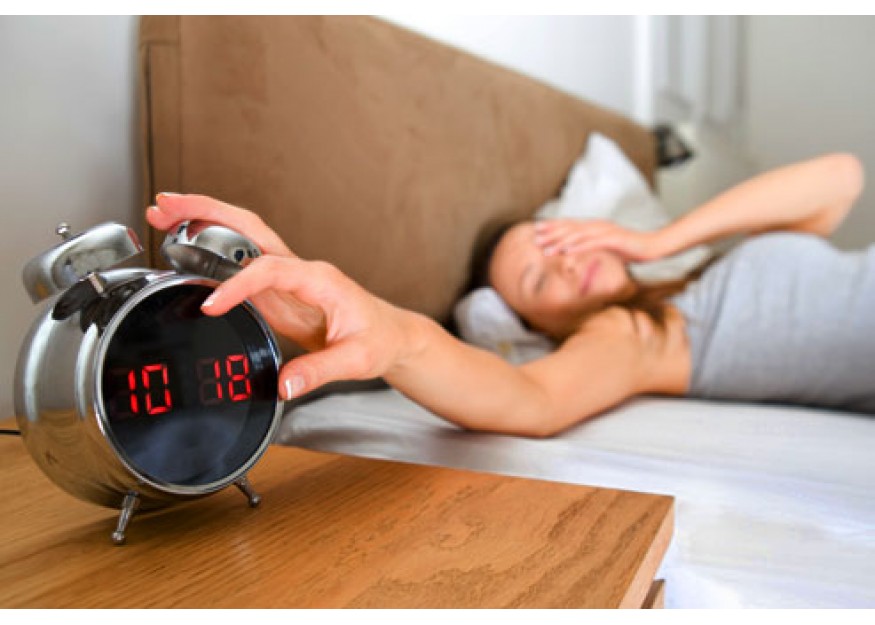HOW TO SURVIVE DAYLIGHT SAVING TIME CHANGE?
Dr. Eve Sõõru lists some tips to help cope with the daylight saving time change more smoothly.

The human body doesn’t immediately adjust to the transition between summer and winter time, i.e., turning the clock forward or backward by one hour, writes Dr. Erve Sõõru, a pulmonologist at North Estonia Medical Centre, in the hospital’s blog. It takes an average of two weeks to adapt to the new sleep rhythm, so one should be aware that the usual work routine may be disrupted during this time.
Older people take more time to adapt. Generally, humans have a good sense of time, and the understanding of the time of day occurs as a result of the body’s biological clock, habit, and experience. The clock change involves a one-hour shift in the entire circadian rhythm. Besides sufficient sleep time, the quality of sleep is also essential for good rest. Insufficient sleep is increasingly considered a widespread health risk.
TOO MUCH AND TOO LITTLE SLEEP AFFECT HEALTH EQUALLY BADLY
Sleep is an active state for the body, with some parts of the brain even more active than during wakefulness. Sleep is considered crucial for the body’s rest and recovery. During sleep, the body rejuvenates and restores itself down to the cellular level. Sleep has functions such as preserving memory and regulating the immune system. A person’s sleep pattern changes throughout life, and the sleep pattern is dynamic even during the night, from evening to morning. The circadian rhythm period is 24 hours. Sleep mechanisms are regulated by constant changes that operate between the circulating hormone and brain structures. Neuroendocrine rhythms serve as an internal clock. The sleep-wake cycle is closely related to biological rhythms, which significantly influence human behavior. The best rested feeling is achieved when sleep and wakefulness rhythms based on one’s biological rhythms are considered.
MELATONIN – THE HORMONE AFFECTING SLEEP AND WAKE CYCLE
Melatonin secretion from the pineal gland starts in the evening with the arrival of darkness and peaks during the night. The circadian melatonin level is regulated by the biological clock, which is synchronous with the cycle of light and darkness in the environment. Upon sensing light in the morning, melatonin secretion into the blood stops. Melatonin, in turn, affects the levels of other hormones in the blood. Information about light reaches the body through the retina, from where it is transported to the pineal gland. The pineal gland contains a collection of nerve cells called the suprachiasmatic nucleus which regulates a large number of biological rhythms that occur throughout the day, including the alternation of sleep and wakefulness. We depend on a 24-hour cycle of light and dark, and this cycle is adjusted every day to maintain the tempo of circadian rhythms. The production of melatonin intensifies during normal circadian rhythms just when we need it. Melatonin replacement therapy is recommended for Nordic people to alleviate seasonal affective disorder, especially for middle-aged and older people. It has been found that sex hormones also affect melatonin production. With aging, the level of sex hormones decreases, and consequently, the sleep pattern changes. The sleep and wake cycles are also affected by cortisol synthesized in the adrenal cortex. Cortisol levels are low in the evening, rising in the second half of the night and reaching a peak by morning.
MORNING AND EVENING PEOPLE
People’s internal rhythm is called the circadian rhythm. According to this rhythm, metabolism and the circadian fluctuation of body temperature also work. Some people are morning people, while others are evening people. Morning people have the lowest body temperature around four in the morning, while evening people have it in the morning. The sleep and wake rhythm of people and the associated rhythm of rest and activity determine whether a person’s more productive working hours are in the morning or evening. To achieve better work results, it would be good to know which type of person you are. With too early rising, the necessary hormones for the body to wake up cannot reach the required level, and the employee is inefficient at work. Long-term changes in sleep and wakefulness rhythm can cause health problems.
The sleep rhythm is individual, and there are fluctuations even within one family. It’s been found that a person can adapt and adopt a rhythm that’s contrary to the body’s nature to some extent, but special work results cannot be achieved as a result. The sleep and wakefulness rhythm of a person is a very complex mechanism that’s not recommended to be constantly changed.
TIPS:
- During the clock change period, avoid stressful situations.
- When transitioning to daylight saving time, wake up an hour earlier. Therefore, also go to bed an hour earlier.
- If necessary, use melatonin replacement therapy to promote falling asleep. Consult a doctor before taking the medicine.
- Start living according to the new time immediately by adjusting bedtime.


